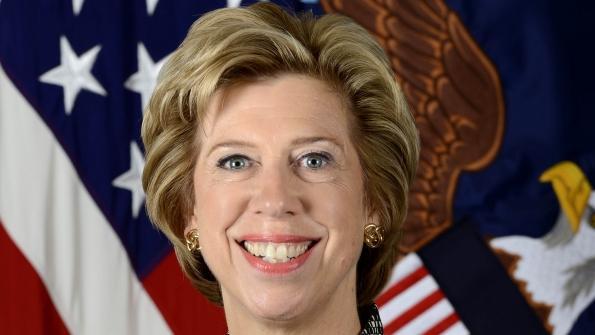
The Pentagon is likely to seek double-digit billions of dollars to reimburse defense contractors that were authorized to seek the money by the CARES Act to preserve their workforce during the COVID-19 crisis, the Pentagon’s top procurement officer told lawmakers June 10.
The problem is that while the section of the $2 trillion COVID-19 relief bill allows contractors to seek that reimbursement, the bill did not provide any related funding. For just one prime contractor, the estimated costs to keep its workforce in a steady state throughout the crisis exceeds $1 billion, Ellen Lord, the under secretary of acquisition, logistics and technology, said during a House Armed Services Committee hearing.
Without additional funding, Lord warns that the Pentagon will “eat into readiness and modernization and slow down readiness and modernization on an ongoing basis.”
Aviation and aviation propulsion are two of the hardest-hit areas of the defense industrial base, because of the implosion of the civil aviation industry, she said. Satellite launches also have been hit, given their dependence on the commercial industry, Lord said.
Lawmakers were looking for details about how much would be needed for defense contractors, as they anticipate a new COVID-19 spending bill will move through Congress at the end of July.
According to Lord, there have been 960 closures and 859 reopenings due to COVID-19. The average closure is about 57 days. But contractors will be specifically requesting reimbursement for issues that affected their employees.
So far, contractors are holding back from seeking claims because they are aware that no appropriation exists yet. The Pentagon’s internal acquisition group has been tracking data from prime contractors; subcontractors, though, may not be sharing all of their issues to avoid revealing proprietary data, she said, while pledging to provide specific guidance on allowable costs within 30 days.
“The defense industrial base is the nexus of economic and national security and it’s vitally important to make sure it stays as healthy as possible,” she said.





